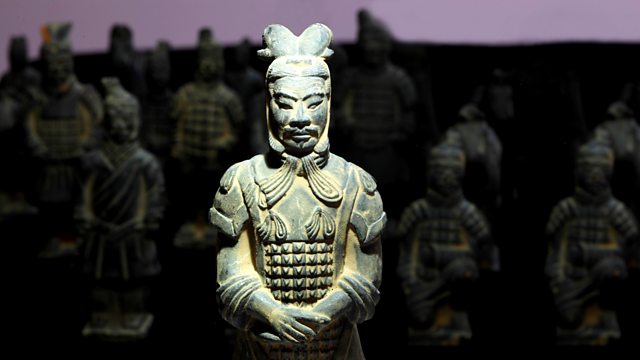The Art of War: Ancient Chinese guide to victory
A manual for achieving success on the battlefield, and in life.
The Art of War is one of the most important military strategy texts ever written, and it has become just as influential, perhaps even more so, in the worlds of business, sport, and politics.
Bridget Kendall learns what the 2,000-year-old treatise has to say about deception, spying, and ruthlessness, and asks why it has come to be viewed as a guide to success in life in general.
But has it been misunderstood? We discuss whether it’s better viewed as a guide to avoiding war and conflict, rather than a manual for how to fight.
Plus, we try to get to the bottom of who really wrote it and learn about the blood-soaked period of Chinese history in which it’s believed to have been created.
Producer: Simon Tulett
Credit: Excerpts from the text were based on translations from Michael Nylan's book (see below), published by W. W. Norton & Company, 2020.
Contributors:
Michael Nylan, professor of early Chinese history at the University of California, Berkeley, in the United States, and author of 'The Art of War: A New Translation by Michael Nylan';
Derek Yuen, a scholar of strategy and international relations from Hong Kong, and author of ‘Deciphering Sun Tzu: How to Read the Art of War’;
Peter Lorge, associate professor of pre-modern Chinese and military history at Vanderbilt University, in Nashville, in the United States, and author of ‘Sun Tzu in the West’.
(Picture: Terracotta warriors - sculptures depicting the armies of Qin Shi Huang, the first emperor of China who unified the country after the Warring States period. Credit: Getty Images)
Last on
More episodes
Broadcasts
- Thu 18 Aug 2022 09:06GMT���˿��� World Service
- Thu 18 Aug 2022 23:06GMT���˿��� World Service
- Sun 21 Aug 2022 13:06GMT���˿��� World Service
What makes good customer service in the 21st century?
Podcast
-
![]()
The Forum
The programme that explains the present by exploring the past



